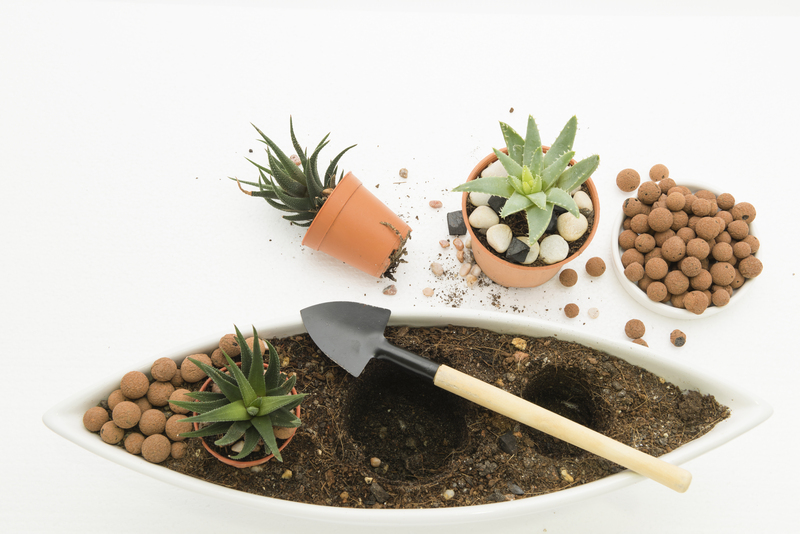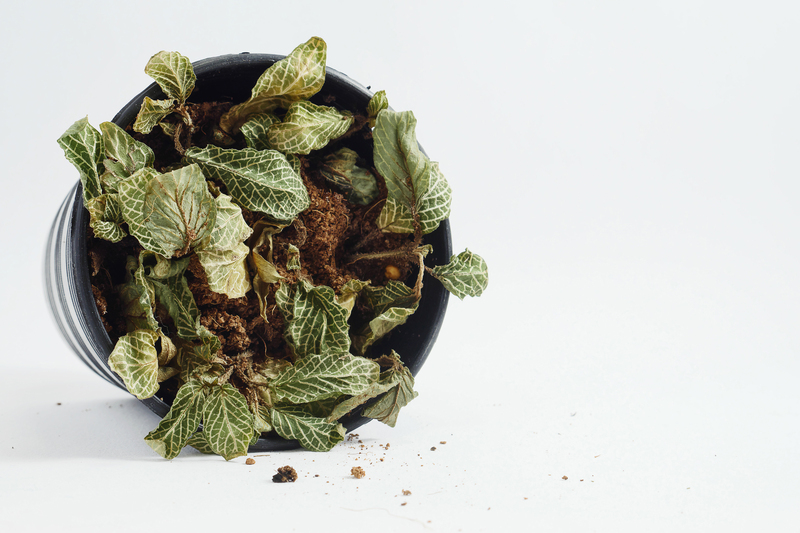Planting and Care of Container Gardens
Posted on 04/04/2024
Planting and caring for container gardens offers an abundance of benefits. Container gardening is an easy and creative way to enjoy the beauty of plants in your own home or outside. With careful planning, anyone can plan and create a beautiful garden in containers. This article will provide tips for planting, maintaining and caring for successful container gardens.
The needs of the plant species you are growing.
Researching the watering requirements, sunlight, soil type, and temperature needs is essential to help choose the right type of plants that suit the environment you want to create in your container garden. You also want to make sure any materials used to construct or decorate the container are safe for plants and free of toxic elements.


It is time to start planting.
Once you have selected the plants you wish to use in your container garden, it is time to start planting. Before planting, ensure that the pot has drainage holes as these will allow excess water to escape so that your plants don't become overwatered. If you have a larger container garden with numerous plants, then grouping them together according to their watering needs is recommended. Prepare the potting soil according to package instructions before filling it into each container; this usually involves using a mix of equal parts peat moss, sand, and potting soil blended together with compost or aged manure. Ensure there is adequate space around each plant so that they can continue growing without inhibiting one another's growth; add lots of slow-release fertiliser at this stage too, as this will provide essential nutrients for optimal growth. Finally, water gently but thoroughly after planting.
Container gardening requires ongoing maintenance throughout the growing season, depending on how intensively it is managed. For regular weeding and pruning throughout your containers, use an old hand trowel or knife with a long blade. Place two fingers apart on either side of a stem when weed-pulling - this ensures that the root system is removed along with the above-ground portion of the weed, thereby preventing re-growth from occurring again later on. Common pests such as aphids can often be deterred by rinsing them off with a strong spray from a garden hose; should problems persist seek advice from a local nursery about suitable pest control treatments.
It is also important to ensure that your container garden remains well watered during periods of hot weather, especially if they are located in full sun areas and out of range from frequent rainfall accumulation too. Applying a generous layer of mulch around each pot will help retain moisture levels over longer amounts of time by reducing evaporation rates caused by direct sun rays too! Take care not overwater either though, as this can cause root rot - if unsure always do an 'inch test' where one digs 1 inch deep into the soil - if moist this indicates there's enough water available, otherwise, an additional drink may be required! Lastly perform regular fertilizer applications prior to heavy flowering times, such as just prior to spring and summer blooming for optimal colour and vigour!
Additional benefits of the container gardens
Container gardens can offer additional benefits too like acting as natural air purifiers; some varieties such as spider plants and bamboo palms have been reported by studies to reduce indoor pollution levels caused by volatile organic compounds (VOC'S) inside homes - although rare still these results are worth noting for possible health implications when deciding what kind of greenery you wish feature inside your living areas!
Overall whether you have limited outdoor space or simply prefer having more control over what exactly grows in your garden - planting and caring for a container garden can be rewarding in many ways both aesthetically and nutritionally! Just remember to research beforehand what type of conditions are favourable for whatever type of plants you might want to cultivate - this helps ensure healthy growth and life sustainment via preventative maintenance methods instead of relying purely on corrective protocols when problems already arise!












